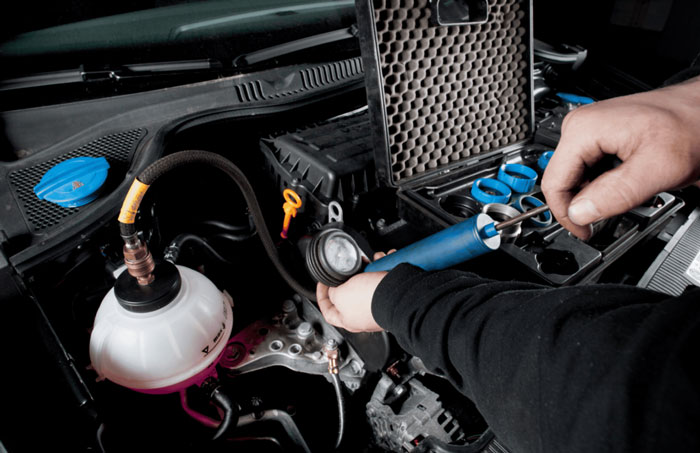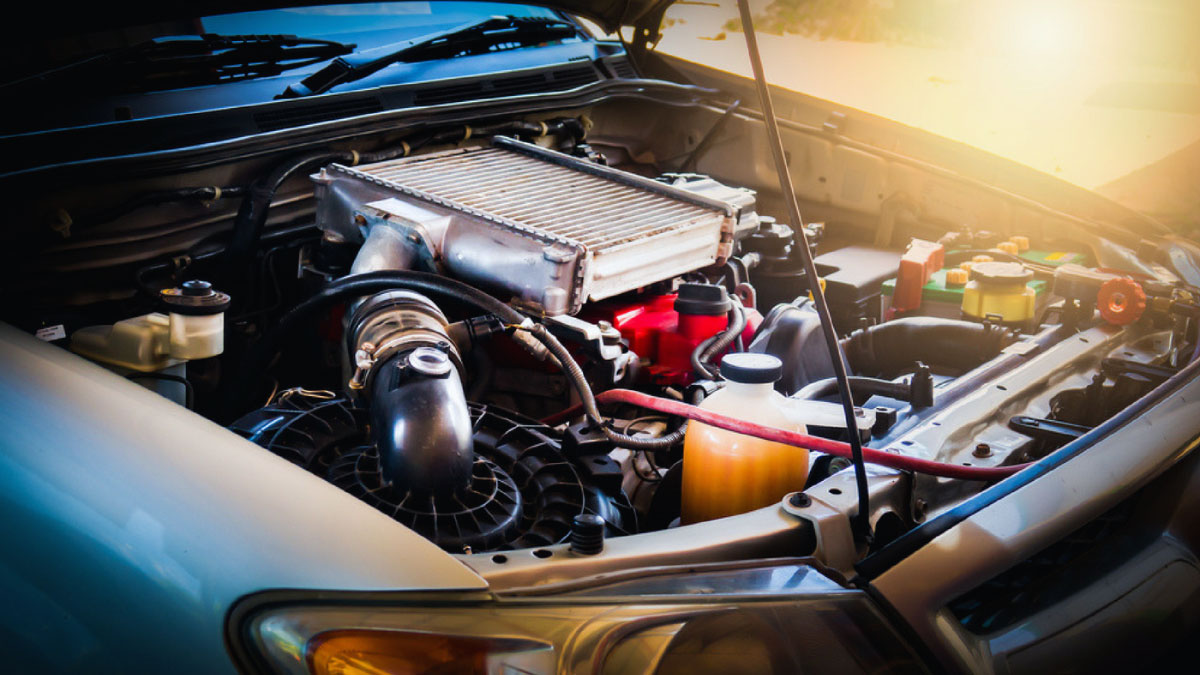Ever felt like your car’s cooling system is about to blow its top like a cartoon character in a pressure cooker? Well, I’ve been there, and let me tell you, it’s not a pretty sight! When it comes to what causes all that excess pressure in your cooling system, it’s like a mystery novel waiting to be solved. From faulty radiator caps playing hide-and-seek with pressure relief valves to clogged arteries in the form of blocked hoses, the culprits are as sneaky as they come.
Picture this: your engine running hotter than a summer day in the desert, and your cooling system feeling like it’s under more stress than a cat in a room full of rocking chairs. It’s enough to make you wonder if your car is secretly training for a pressure-cooker competition! So, buckle up, folks, as we jump into the wild world of what really causes too much pressure in your cooling system.
Understanding Cooling Systems
Hey there, let’s jump into the intriguing area of cooling systems in vehicles!
Basics of Cooling System Operation
Imagine your car’s cooling system as a superhero cape, keeping the engine cool and preventing it from turning into a fiery mess. This system works by circulating coolant through the engine to absorb heat and then releasing it through the radiator. It’s like your car’s very own air conditioning system, but for the engine!
Role of the Cooling System in Vehicle Performance
So, why is the cooling system crucial for your car’s performance? Well, picture this: without a properly functioning cooling system, your engine would overheat faster than a microwave popcorn bag left in for too long. This could lead to engine damage, decreased fuel efficiency, and potentially a hefty repair bill. In a nutshell, the cooling system is the unsung hero that keeps your car running smoothly and prevents it from throwing a hot-headed tantrum on the road.
Common Causes of High Pressure in Cooling Systems
Ah, buckle up, folks! We’re diving into the wild world of “Why’s my car’s cooling system acting like a pressure cooker?” Strap in for a rollercoaster ride through faulty radiator caps, blocked hoses, and an overheating engine. It’s like a detective story, but with more coolant and fewer magnifying glasses.

Faulty Radiator Cap
Picture this: your radiator cap decides to go rogue—it’s all about drama and high pressure! When this little troublemaker doesn’t seal properly, it’s like leaving a door open in a snowstorm. The pressure builds up, coolant gets hot under the collar, and your engine starts sweating bullets.
Blocked Radiator Hoses or Passages
Imagine your radiator hoses throwing a party and blocking the entrance! When these crucial passages get clogged with gunk and debris, it’s like trying to drink a milkshake through a straw that’s already playing host to a fruit salad. The coolant can’t flow freely, tempers rise, and your engine goes into meltdown mode.
Overheating Engine
An overheating engine is like a chef that can’t handle the heat in the kitchen. When the cooling system is on the fritz, your engine starts feeling like it’s sunbathing in Death Valley. Without proper cooling, it’s a recipe for disaster—cooked pistons, warped heads, and a very expensive repair bill.
Consequences of Excessive Pressure
Ah, too much pressure in your cooling system can wreak havoc like an overfilled balloon at a kids’ party. Let’s explore the aftermath of this automotive chaos.
Potential Damage to Components
- Like a Drama Queen Engine: Excessive pressure can strain your engine, leading to blown gaskets and cracked cylinders—a real automotive soap opera!
- Coolant Catastrophe: The coolant reservoir might explode under the strain, creating a rainbow of coolant colors reminiscent of modern art.
- Hoses Under Siege: Hoses can bulge and burst, resembling an out-of-control garden hose at a summer BBQ.
- Hot Mess: An overheated engine can pose a fire hazard, turning your car into a mobile grill. Remember, we want engines cool, not on fire!
- Steam Showers: Excess pressure might cause steam explosions, giving bystanders an unexpected spa experience. Not the kind of steamy situation you want.
Preventative Measures and Solutions
Regular Maintenance Tips
As a car enthusiast, I know that proper maintenance is key to keeping your cooling system in top shape. Here are some tips to avoid the pressure cooker situation in your vehicle:
- Check Radiator Caps: Make sure your radiator cap is in good condition. It’s like ensuring your superhero cape is ready for action!
- Inspect Hoses: Don’t let your hoses turn into a fruit salad! Check for blockages to keep the coolant flowing smoothly.
- Monitor Engine Temperature: Keep an eye on your engine temperature gauge. You don’t want your engine to feel like a chef in a hot kitchen.
- Regular Coolant Checks: Maintain the right coolant levels. Think of it as giving your engine a refreshing drink to stay cool.
When to Seek Professional Help
Sometimes, even superheroes need a sidekick. Here’s when you should call in the experts:
- Persistent Overheating: If your engine keeps overheating even though your efforts, it’s time to let the pros step in.
- Visible Leaks: Don’t ignore puddles under your car. It’s like your vehicle is crying for help!
- Unusual Noises: If your car starts making strange sounds, it’s best to have a professional take a look. Don’t let your ride become a noisy neighbor!
Conclusion
Well, there you have it! Excessive pressure in your car’s cooling system is like a ticking time bomb waiting to go off. From faulty radiator caps to blocked hoses, it’s a real superhero cape crisis for your engine. Picture a chef in a hot kitchen – that’s your engine struggling with the heat! Remember, ignoring these issues can lead to a disaster that even Batman couldn’t save you from. So, keep an eye on your radiator caps, hose blockages, and engine temperature to avoid turning your car into a steam engine gone rogue. And if things start heating up, don’t be a hero – call in the professionals before your car decides to put on a fiery show! Stay cool, folks!
Frequently Asked Questions
What is the importance of maintaining a proper cooling system in a vehicle?
Maintaining a proper cooling system is crucial to prevent engine damage and costly repairs. A well-functioning cooling system helps regulate engine temperature, preventing overheating. Neglecting maintenance can lead to issues like high pressure, which can cause damage to engine components, coolant reservoir explosions, burst hoses, fire hazards, and unexpected steam explosions.
What are the common causes of high pressure in a vehicle’s cooling system?
Common causes of high pressure in a cooling system include faulty radiator caps, blocked hoses, and overheating engines. These issues can stress the cooling system, leading to potentially destructive consequences if not addressed promptly.
How can I prevent high pressure in my vehicle’s cooling system?
To prevent high pressure in the cooling system, regularly check radiator caps, inspect hoses for obstructions, monitor engine temperature, and maintain proper coolant levels. Seek professional help if you notice persistent overheating, visible leaks, or unusual noises coming from your vehicle. Proper maintenance is key to avoiding the chaos that can result from excessive pressure in the cooling system.

